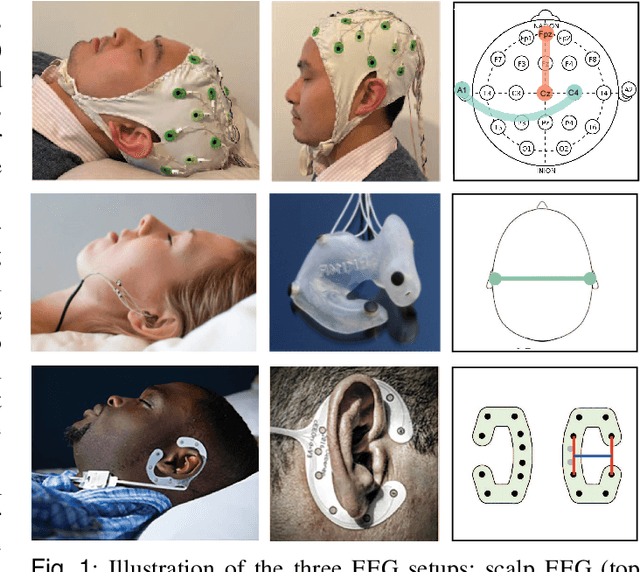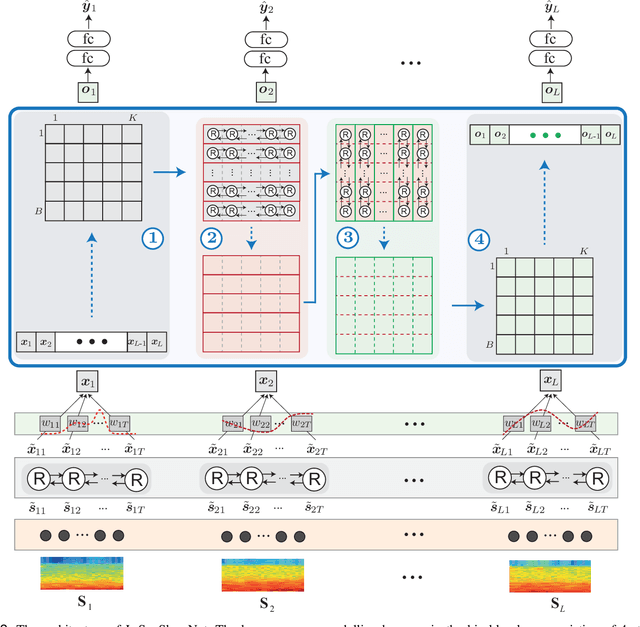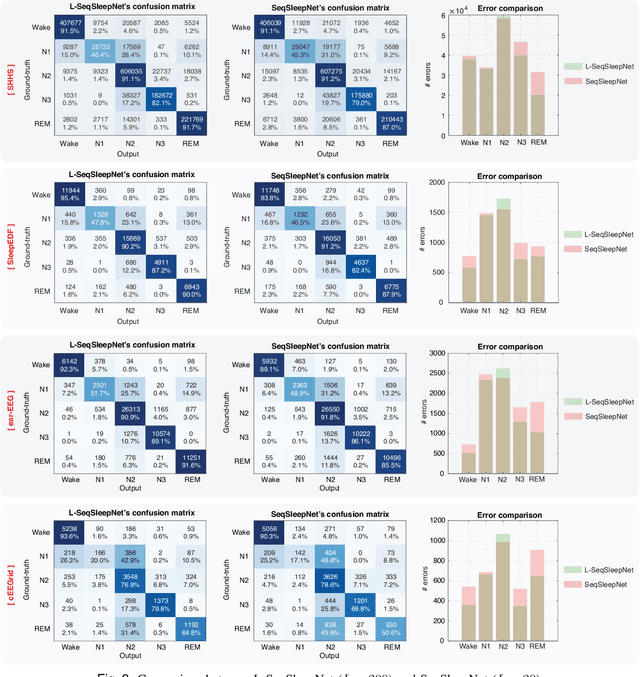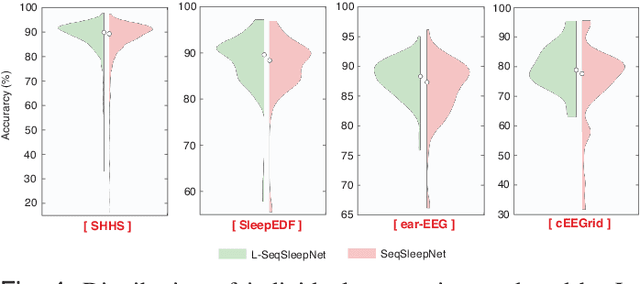Mathias Baumert
L-SeqSleepNet: Whole-cycle Long Sequence Modelling for Automatic Sleep Staging
Jan 25, 2023



Abstract:Human sleep is cyclical with a period of approximately 90 minutes, implying long temporal dependency in the sleep data. Yet, exploring this long-term dependency when developing sleep staging models has remained untouched. In this work, we show that while encoding the logic of a whole sleep cycle is crucial to improve sleep staging performance, the sequential modelling approach in existing state-of-the-art deep learning models are inefficient for that purpose. We thus introduce a method for efficient long sequence modelling and propose a new deep learning model, L-SeqSleepNet, which takes into account whole-cycle sleep information for sleep staging. Evaluating L-SeqSleepNet on four distinct databases of various sizes, we demonstrate state-of-the-art performance obtained by the model over three different EEG setups, including scalp EEG in conventional Polysomnography (PSG), in-ear EEG, and around-the-ear EEG (cEEGrid), even with a single EEG channel input. Our analyses also show that L-SeqSleepNet is able to alleviate the predominance of N2 sleep (the major class in terms of classification) to bring down errors in other sleep stages. Moreover the network becomes much more robust, meaning that for all subjects where the baseline method had exceptionally poor performance, their performance are improved significantly. Finally, the computation time only grows at a sub-linear rate when the sequence length increases.
Pediatric Automatic Sleep Staging: A comparative study of state-of-the-art deep learning methods
Aug 23, 2021



Abstract:Despite the tremendous progress recently made towards automatic sleep staging in adults, it is currently known if the most advanced algorithms generalize to the pediatric population, which displays distinctive characteristics in overnight polysomnography (PSG). To answer the question, in this work, we conduct a large-scale comparative study on the state-of-the-art deep learning methods for pediatric automatic sleep staging. A selection of six different deep neural networks with diverging features are adopted to evaluate a sample of more than 1,200 children across a wide spectrum of obstructive sleep apnea (OSA) severity. Our experimental results show that the performance of automated pediatric sleep staging when evaluated on new subjects is equivalent to the expert-level one reported on adults, reaching an overall accuracy of 87.0%, a Cohen's kappa of 0.829, and a macro F1-score of 83.5% in case of single-channel EEG. The performance is further improved when dual-channel EEG$\cdot$EOG are used, reaching an accuracy of 88.2%, a Cohen's kappa of 0.844, and a macro F1-score of 85.1%. The results also show that the studied algorithms are robust to concept drift when the training and test data were recorded 7-months apart. Detailed analyses further demonstrate "almost perfect" agreement between the automatic scorers to one another and their similar behavioral patterns on the staging errors.
 Add to Chrome
Add to Chrome Add to Firefox
Add to Firefox Add to Edge
Add to Edge